US, Allies Warn Houthis Against Maritime Attacks
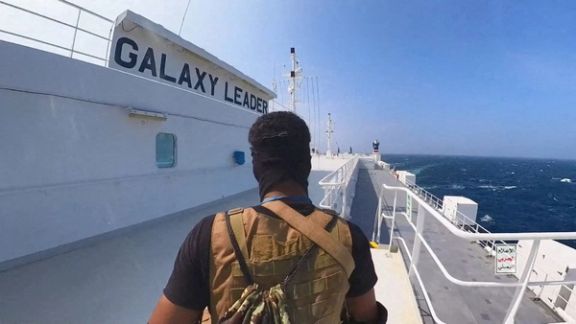
A joint statement by the US, UK, Germany, Japan, Bahrain and several other countries warned Iran-backed Houthis against attacking commercial vessels in the Red Sea.

A joint statement by the US, UK, Germany, Japan, Bahrain and several other countries warned Iran-backed Houthis against attacking commercial vessels in the Red Sea.
“Let our message now be clear: we call for the immediate end of these illegal attacks and release of unlawfully detained vessels and crews,” the statement said.
Immediately after the White House issued the joint statement, the US Central Command posted the following excerpt on X. “The Houthis will bear the responsibility of the consequences should they continue to threaten lives, the global economy, and free flow of commerce in the region’s critical waterways.”
After Iran's Supreme Leader Ali Khamenei called for a trade blockade with Israel in November, Tehran's proxy allies, the Houthi movement in Yemen, started launching missiles and drones at vessels in international waters around the Red Sea.
The attacks escalated in recent weeks, leading 44 nations to form a naval coalition to ensure maritime security in the region.
However, the United States has chosen not to retaliate on Yemeni soil while defending against the Houthi attacks by intercepting incoming projectiles and deterring boats that pose threats to ships.
Wednesday’s joint statement appears to be a warning of impending retaliation if the attacks continue.
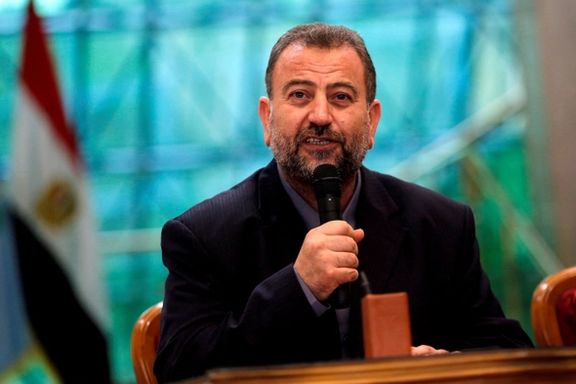
The Islamic Revolutionary Guard Corps (IRGC) issued a condemnation regarding the killing of Saleh al-Arouri, a senior Hamas official.
Al-Arouri, serving as Hamas's deputy leader abroad, was targeted in an alleged Israeli strike in Dahiyeh, a Hezbollah stronghold in Beirut on Tuesday, part of the Jewish state's mission to destroy the UK designated terror group after the October 7 invasion.
The IRGC's statement claimed that attempts to “rectify the defeat on [October 7] through acts of assassination and crime are futile. The Zionist regime, currently facing challenges, is deemed incapable of distorting the resistance's strategic calculations through such actions,” disregarding the fact that since the attacks, Gaza has been devastated by Israel's relentless retaliation and dozens of its top commanders assassinated.
Naser Kanaani, Iran's Foreign Ministry spokesman, also condemned Israel's "despicable" actions, labeling them as killings that will serve to further motivate the region to resist Israel. Despite the condemnation, Iranian government websites provided minimal coverage of the event on Wednesday as the regime marked the fourth anniversary of the death of former IRGC Quds Force Commander Qasem Soleimani, killed in a US drone strike on January 3, 2020.
Al-Arouri, a founding member of Hamas's military wing, had overseen the group's operations in the West Bank and spent nearly 18 years in Israeli prisons since the early 1990s. Residing in Lebanon since 2018, he was known for his close ties to both Hezbollah and Iran. His West Bank home was also flattened in the wake of the October 7 attacks.
Since the October 7 invasion led by Iran-backed Hamas into Israel, resulting in the loss of 1,200 lives, predominantly civilians, and the abduction of over 240 more, Iran's proxies have been activated across the region.
Attacks on both Israel and US facilities across the region have intensified, Iranian proxies in Yemen, Lebanon, Iraq, and Syria claiming to stand in support of Hamas, culminating in the worst crisis witnessed in recent years.
Iran's Yemeni proxy, the Houthis, have implemented a blockade of the Red Sea and surrounding area, leading to a more than 20-nation coalition being formed by the US to counter the threat to global trade routes.
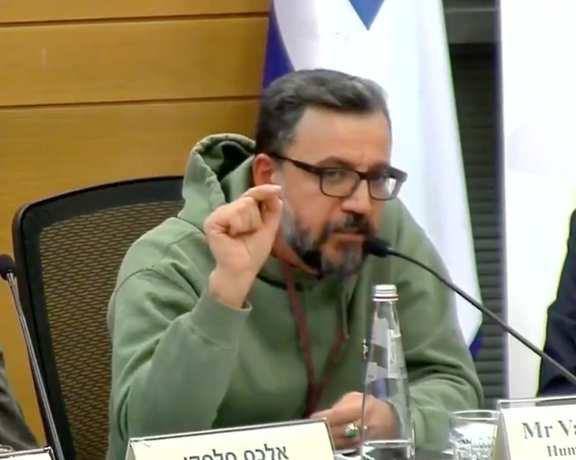
In a message to Israel's parliament on Tuesday, Iranian opposition figure Vahid Beheshti urged Israel to target Iran directly amid the regime's proxy war raging in the region.
Beheshti, known for his recent hunger strike in London in a bid to pressure the UK government to designate Iran's Revolutionary Guard Corps, said direct action is "the only language they understand”.
“Help us overthrow the government. Try to imagine what the Middle East would look like without the Iranian government,” he urged.
Speaking before the Israel Victory Caucus, which consists of Knesset members, security experts, and political leaders, Beheshti highlighted the pressing challenge to regional security posed by Iran, which last month was exposed for rapidly progressing its enrichment in the race towards nuclear weapons.
Since October 7 when Iran-backed Hamas invaded Israel, killing 1,200 mostly civilians and taking 240 or more hostage, attacks on both Israel and US facilities in the region have spiked. Iranian proxies in Yemen, Lebanon, Iraq and Syria have been activated triggering the worst crisis in recent years.
Israeli Prime Minister Benjamin Netanyahu repeated his calls this week to ensure Iran does not achieve nuclear capabilities while the country continues to fight Hamas in Gaza. Israeli strikes on Iranian linked facilities in the region also continue alongside the war against Hamas, including an alleged assassination of the regime's most senior military figure in Syria.
Beheshti said the Iranian government is at its weakest in 44 years in the wake of the 2022 uprising which has seen the strongest resistance to the government since the foundation of the Islamic Republic in 1979.
He urged Israel to recognize the potential support from approximately 80 million Iranians yearning for freedom and democracy.
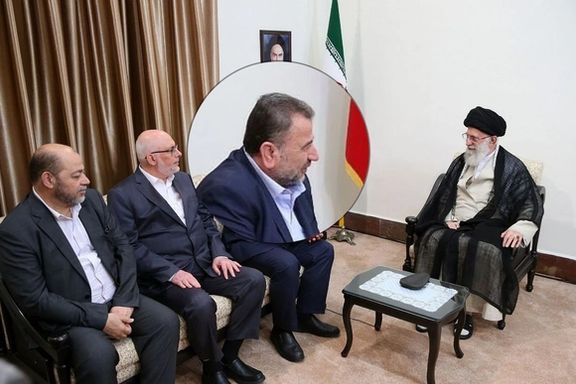
Iran's government, military and hardliners have so far reacted cautiously to the Israeli assassination of a senior Hamas official, Saleh al-Arouri, in Lebanon.
A drone attacked Hamas’s office in the southern suburbs of Beirut, where Arouri had a meeting. Several others attending were also killed.
Iran's Foreign Ministry spokesman condemned Israel's "despicable" killing of al-Arouri and two other military commanders, saying the killings will further "motivate" the region to fight Israel. But Iranian government websites on Wednesday had little to say about the major event, as the regime marks the fourth anniversary of Qasem Soleimani's death. On January 3, 2020, the all-powerful IRGC regional operative was killed by a US drone strike in Baghdad.
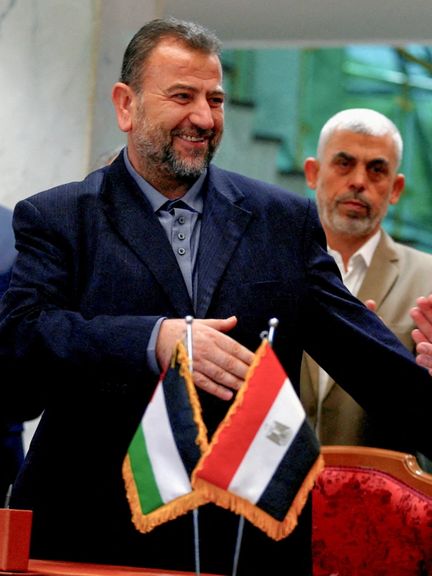
Curiously, the low-key reaction to al-Arouri's targeted killing came despite the fact that he was a key figure in Hamas’s relationship with the regime in Iran. Hezbollah issued a statement, however, calling the killing a “serious assault on Lebanon” that would be punished. “The resistance has its finger on the trigger,” the statement read.
Hezbollah leader Sayyed Hassan Nasrallah had previously warned Israel that his group would retaliate against any attempt on the lives of Palestinian (or other allied) officials in Lebanon.
A spokesperson for the Israeli military said it was “in a very high state of readiness” and “highly prepared for any scenario, alluding to a potential strike from Hezbollah.
This was the first Israeli attack on Beirut since 2006.
The drone attack is a major escalation after nearly three months of conflict on Israel’s northern border with Lebanon, where Hezbollah forces and the Israeli troops have been exchanging fire almost daily ever since Hamas rampaged Israel on October 7, 2023.
Israel vowed to kill “all” Hamas leaders after that attack. Saleh Al-Arouri is the most senior Hamas official to have been killed since thena.
Arouri was one of the founders of Hamas’s military wing and in charge of the group in the West Bank. He had spent nearly 18 years in Israeli prisons since the early 1990s. Living in Lebanon since 2018, he was known to be close both to Hezabollah and to Iran.
Images of his recent meeting with Ali Khamenei surfaced after the news of his killing. Almayadeen published excerpts of a recent interview with him, where he said getting killed would be “the ultimate victory.”
Arouri’s killing raises fears that Hezbollah would be drawn into the war. The group, supported financially and militarily by Iran, is widely believed to be the most powerful non-state actor in the region –far more powerful than Hamas, certainly.
There were reports last week that Israeli officials and generals were considering a shift from high-intensity operations to more “surgical” strikes on high-ranking Hamas officials.
The Institute for the Study of War (ISW), based in Washington D.C. and "focused on US national security", reported Tuesday eveningthat the Israeli army has withdrawn “five brigades” from Gaza Strip to transition from “major combat operations” to “targeted raids,” and establishing a security buffer zone within the Gaza Strip.
“Israeli forces have degraded several Hamas units and rendered others combat ineffective, particularly in the northern Gaza strip,” ISW posted on X. “But Hamas’ military forces are neither defeated nor destroyed at this time.”
Arouri’s assassination may prove to be a fatal blow to any talks about hostage release, as he is said to have been influential in the negotiations earlier.
Lebanon’s prime minister, Najib Mikati, condemned the attack as a “new Israeli crime intended to spur a new phase of conflict.”
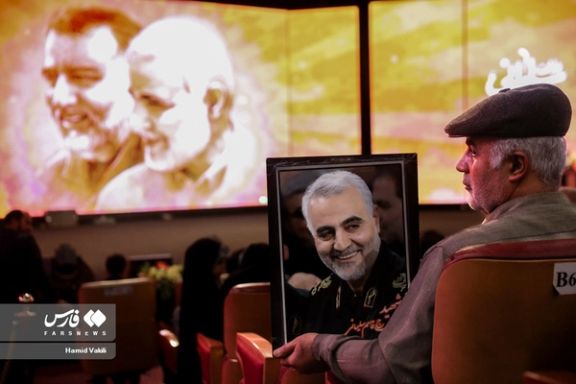
An Israeli drone killed top Hamas leader Saleh Al-Arouri Tuesday, on the eve of the fourth anniversary of the US killing of IRGC commander Qasem Soleimani.
Some hardline commentators in Iran are suggesting that the timing has been deliberate and all the more insulting. Al-Arouri was killed just as state-media in Iran broadcast images of mourners paying homage to Soleimani in his hometown of Kerman.
Iran’s permanent mission to the United Nations registered another protest on Tuesday, claiming a “legitimate right under international law to pursue legal proceedings to hold accountable and bring to justice perpetrators” of Soleimani’s killing.
Whether or not the timing was deliberate, it’s only natural that Soleimani’s name would be invoked in any such attack, since he played a crucial, perhaps unique, role in strengthening the multiplicity of armed groups which the Islamic Republic calls the Axis of Resistance –and many in the West call Iran proxies.
In more than two decades at the head of the IRGC’s Quds forces, Soleimani managed to create a loose but effective coalition of forces spanning from Yemen to Lebanon, all with domestic interest but united in their enmity towards Israel and the US.
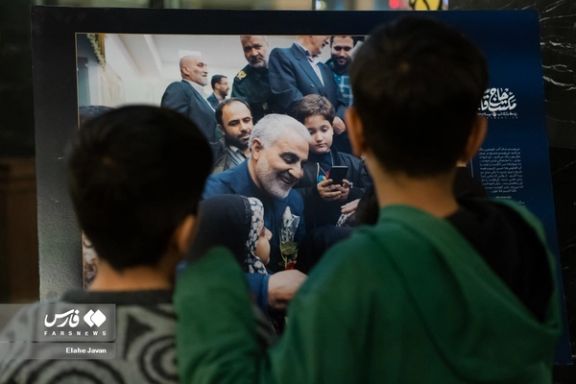
In the past few days, state-affiliated media in Iran have published many accounts of Soleimani’s “achievements” in the region and beyond, including a lesser-known story of his role in the Bosnian war in the early 1990s.
In an interview with the IRGC-affiliated Tasnim News, former commander of IRGC forces in Syria Mohammad Jafar Asadi described how Soleimani got involved in a European civil war almost immediately after taking charge of the Quds Force.
“It was almost 1am. I was home. The phone rang. I picked up and it was Qasem [Soleimani]... He said I need these weapons. Write them down. I said, now? He said, "No questions, start writing.”
The weapons were delivered early in the morning and shipped to the Balkans, where Iran was supporting Muslim Bosnians.
Asadi then went on to talk about Soleimani’s role in Syria, claiming that he was the one to convince Vladimir Putin to commit the Russian air force in support of the Syrian dictator Bashar Assad.
Russia and Iran did indeed become ‘strategic’ allies in Syria, propping up the Assad regime in a brutal campaign that killed at least 300,000 and brought total destruction to large parts of the country.
Not much of a surprise that some Syrians celebrated Soleimani's killing four years ago to the day.
Soleimani’s name once more became ubiquitous in Iran’s state-affiliated media after Hamas’ rampage of Israel on October 7, with many officials hailing the attack as an ultimate fruition of his efforts, while at the same time denying any direct involvement in the planning or execution of the operation.
In a long piece in the hardline paper Farhikhtegan, it’s claimed that Soleimani had a crucial hand in getting weapons into Gaza and even the West Bank –claims that are hard to verify or reject.
Moreover, Farhikhtegan revealed how Soleimani emphasized on domestic production of weapons in Gaza and Yemen –where Houthis have become a major headache, disrupting the flow of vessels in the Red Sea to and from the Suez Canal.
“He believed we should not limit our weapons support program to exports and teach them fishing so that they can make their own weapons… A considerable part of the Resistance’s weapons are manufactured in underground factories of Gaza. And it’s the same thing in Yemen.”
The targeted killing of Hamas leader Al-Arouri in Beirut could be the trigger many observers feared would draw in Hezbollah into a wider war with Israel. If that were to happen, if the Middle East were to be engulfed in a major war, Soleimani’s image would almost certainly be invoked again by all those involved, the outcome of that war notwithstanding.
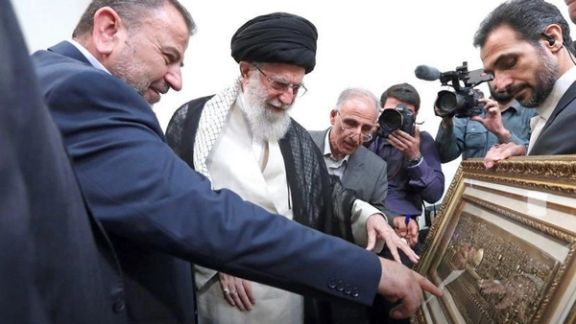
An air strike in Beirut on Tuesday killed Saleh Arouri, a top Hamas official and three others, officials with Hamas and the Lebanese group Hezbollah said.
Lebanon’s state-run National News Agency said the blast killed four people and was carried out by an Israeli drone. Israeli officials declined to comment.
Arouri is said to have had close ties to the Iranian regime and met Supreme Leader Ali Khamenei and other top officials on several occasions.
If Israel is behind the attack, it could mark a major escalation in the Middle East conflict. Hezbollah leader Sayyed Hassan Nasrallah had earlier vowed to retaliate against any Israeli targeting of Palestinian officials in Lebanon.
Hamas official Bassem Naim confirmed to The Associated Press that Arouri was killed in the blast. A Hezbollah official speaking on condition of anonymity in line with regulations also said Arouri was killed.
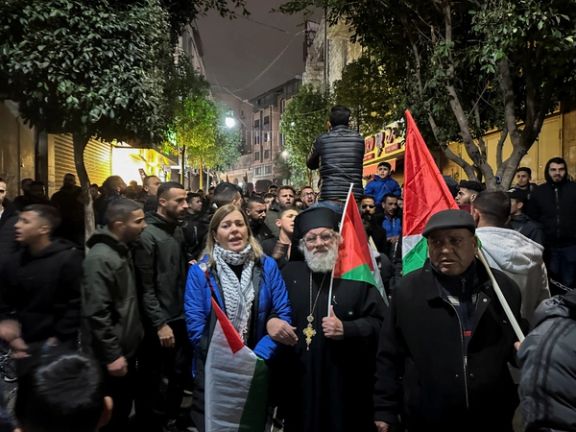
Arouri, one of the founders of Hamas' military wing, had headed the group's presence in the West Bank. Israel's Prime Minister Benjamin Netanyahu had threatened to kill him even before the Hamas-Israel war began on October 7.
The explosion shook Musharafieh, one of the Lebanese capital's southern suburbs, which are a stronghold of the militant Hezbollah group, an ally of Hamas. The explosion caused fire in Hadi Nasrallah street south of Beirut.
The explosion came during more than two months of heavy exchanges of fire between Israeli troops and members of Hezbollah along Lebanon’s southern border.
Since the hostilities between Israel and the Lebanese Hezbollah began on October 8, the fighting has been concentrated a few kilometers from the border but on several occasions Israel’s air force hit Hezbollah targets deeper in Lebanon.
Earlier in the day, Hezbollah said its fighters carried out several attacks along the Lebanon-Israel border targeting Israeli military posts.
(With reporting by The Associated Press)